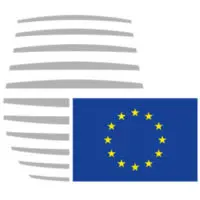An EU Digital Identity Wallet (EUDI) is to be made available free of charge to all 450 million citizens of the EU in the form of a personal digital wallet stored on their mobile phone, the European Parliament and the Council of the EU have agreed.

The digital identity wallet is expected to be made available to 80% of EU citizens by 2030 and will provide them with full control of their personal data.
The new deal between the European Parliament and the Council of the EU covers the core elements of the framework to be used for the introduction of the EUDI “with a view to ensuring secure, trusted, and seamless access to cross-border public and private services in the EU”.
“The proposal requires member states to issue a digital wallet under a notified eID scheme, built on common technical standards, following compulsory certification,” the two bodies explain.
Technical specifications
“To set up the necessary technical architecture, speed up the implementation of the revised regulation, provide guidelines to member states and avoid fragmentation, the proposal was accompanied by a recommendation for the development of a Union toolbox defining the technical specifications of the wallet.”
“The revised regulation constitutes a clear paradigm shift for digital identity in Europe aiming to ensure universal access for people and businesses to secure and trustworthy electronic identification and authentication by means of a personal digital wallet on a mobile phone,” they add.
“The issuance, use for authentication and revocation of wallets should be free of charge to natural persons,” they say. “The wallet will also provide the possibility of e-signatures to natural persons free of charge.
“The new rules imply a shift for issuers of European digital identity solutions, providing a common technical architecture and reference framework and common standards to be developed with member states.
“Users would therefore be able to rely on an improved ecosystem for electronic identity and trust services recognised and accepted everywhere in the EU.”
“More and more people are using their identity and credentials in everyday contacts with public and private entities,” Sweden’s minister for public administration Erik Slottner says.
“A European digital identity wallet is therefore indispensable. This way, at least 80% of EU citizens should be able to use a digital ID solution to access key public services by 2030.”
Pilots
The provisional political agreement has been welcomed by the EU Commission, which is currently conducting four large-scale eID pilots for use cases including a mobile driving licence, eHealth, payments, and education and professional qualifications.
“The central innovative element of this framework is a personal digital wallet in the form of a secure and convenient mobile app,” the Commission says. “This will allow all EU citizens, residents and businesses to have trustworthy access to public and private online services all over Europe
“The EU Digital Identity Wallet will revolutionise digital identification by giving Europeans control over their personal data with the full convenience of mobile apps. They will be able to use online services and provide identity credentials in full control of their personal data.”
Next: Visit the NFCW Expo to find new suppliers and solutions